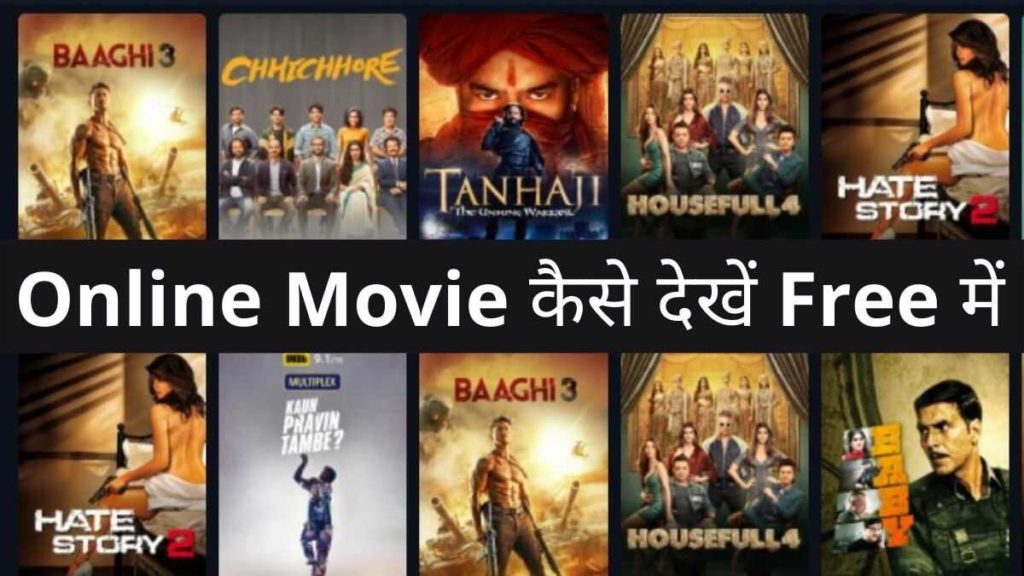Best Movies On HDHub4u In 2025: Download Guide & Tips
Will the digital landscape of 2025 see the demise of traditional movie distribution, and will platforms like "hdhub4u" continue to exist? The proliferation of on-demand streaming services, combined with the ever-present allure of free content, presents a complex future for how we consume movies. The question isn't simply whether platforms offering unauthorized downloads will survive, but rather how the industry itself will adapt to a rapidly evolving ecosystem.
The very nature of accessing and enjoying cinematic experiences is undergoing a dramatic transformation. The lines between theatrical releases, home entertainment, and digital distribution are blurring, creating both opportunities and challenges for studios, distributors, and, of course, the audience. Examining the trajectory of content consumption, technological advancements, and the legal battles that have shaped the current environment provides a glimpse into the potential landscape of movie distribution in 2025. This forecast isn't about predicting the precise path, but rather exploring the forces at play and their probable influence.
Let's consider the hypothetical individual at the heart of the "hdhub4u in 2025 movie download" scenario. Imagine someone consistently seeking out movies through this avenue. Lets call this individual Alex. Heres a breakdown of a profile reflecting this behaviour:
| Category | Details |
|---|---|
| Name: | Alex (Fictional) |
| Age (in 2025): | 30 |
| Location (in 2025): | City, with a high-speed internet connection |
| Internet Access: | Reliable high-speed internet, multiple devices (smartphone, tablet, smart TV) |
| Primary Device for Movie Consumption: | Smart TV connected to a home theater system. |
| Streaming Service Subscriptions (Hypothetical, in 2025): | Potentially multiple, including major players and niche platforms. |
| Consumption Habits: | Frequently watches movies, prioritizes new releases, values convenience and low cost. Likely uses ad blockers and other tools to enhance online experience. |
| Attitude towards Copyright: | Potentially views copyright infringement as a minor issue, prioritizing access over legality, unless legal consequences become severe. |
| Awareness of Risks: | May be aware of the risks associated with illegal downloads (malware, legal repercussions) but may perceive the risk as low. |
| Motivation for "hdhub4u" Type Behavior: | Cost (avoiding subscription costs or rental fees), Access (instant access to new releases), Convenience (ease of downloading and watching), and potentially, the lack of content availability in their specific region or preferred language. |
| Professional Background (Hypothetical): | Likely to be involved in Technology, or in any industry which has reliance of digital media. |
| Education: | Higher education, suggesting a higher level of digital literacy. |
| Career: | Software Developer, or other tech field. |
| Digital Footprint: | Likely active across multiple online platforms, with some degree of digital awareness. |
| Reference: | The Verge |
The enduring appeal of platforms like "hdhub4u" hinges on several factors, primarily the convergence of cost, access, and convenience. Streaming services offer a wealth of content, yet the subscription fatigue is real. The combined monthly costs of multiple subscriptions can become prohibitive, especially for those consuming a high volume of movies. The desire for instant access to new releases, often before or concurrently with official release dates in certain regions, is another significant driver. The convenience of downloading, the ability to watch offline, and the perception of anonymity offered by VPNs and other tools further fuel the practice. The core issues are price, access, and perceived lack of risk.
However, the landscape is becoming more complex and more contested. The film industry is actively combatting piracy through legal action, technological solutions, and influencing public opinion. Anti-piracy measures are continuously being refined, from advanced encryption and digital watermarks to geographical restrictions and dynamic content filtering. The availability of legal alternatives is also increasing, with more streaming services offering a wider variety of content, including early access or premium options for new releases. Services like Movies Anywhere, which allows consumers to consolidate their digital movie libraries, also contribute to convenience, and therefore, might provide a compelling alternative to the illicit downloading.
Looking ahead to 2025, the future of "hdhub4u" and its ilk is uncertain. Several scenarios are plausible. In one scenario, increased enforcement and technological advancements could make accessing pirated content significantly more difficult and risky, leading to a decline in its popularity. In another scenario, the platforms might evolve, adapting to survive. They could become more sophisticated, offering proxy services to bypass regional restrictions, integrating with emerging technologies like blockchain to create decentralized distribution networks, or even incorporating paid elements to circumvent detection. Alternatively, the platforms could become increasingly specialized, catering to specific niches or regions where legal content is less readily available.
The evolution of movie distribution in 2025 will likely be characterized by a continuous cat-and-mouse game between content providers and those seeking free access. The industry is likely to adopt a multi-pronged approach: continued legal action against pirate sites, enhanced technological protections for content, and offering a wider range of attractive legal alternatives. Subscription fatigue may drive people to illegal platforms, and geo-restrictions may encourage the illegal use. However, streaming services may find a creative solution by partnering with local cinema and offering premium service in the form of on-demand.
One of the crucial developments will be the advancements in streaming technology, with higher bandwidth capabilities, enhanced video and audio quality. 8K resolution may be widely adopted, and immersive audio formats such as Dolby Atmos will become standard. The user experience will continue to be paramount, with customized recommendations, and interactive features becoming more common. The growth of virtual reality (VR) and augmented reality (AR) could introduce entirely new ways to consume movies, blurring the lines between watching and participating. Streaming platforms might integrate elements of social viewing.
The role of legislation and legal frameworks cannot be overlooked. Copyright laws will continue to be a major factor, with governments worldwide facing the challenge of balancing the rights of content creators with the publics desire for access. International cooperation will be vital in addressing piracy across borders, and in enforcing existing laws. The legal status of VPNs and other tools will also be crucial, as these technologies are often used to access pirated content.
Moreover, the content itself will evolve. With the growth of global streaming services, there will be greater diversity in content, including productions from a wider range of countries and cultures. This increased variety may satisfy the demand for variety and might discourage illegal downloads. In addition, the emergence of niche platforms that focus on specific genres or interests could appeal to a wider range of moviegoers and will potentially disrupt the dominance of major streaming services. Independent films and documentaries might find new audiences through specialized platforms and distribution methods.
Blockchain technology has the potential to disrupt movie distribution. Platforms leveraging blockchain could offer more secure and transparent ways to distribute content, tracking royalty payments and combating piracy. Decentralized streaming services could create new distribution models, potentially challenging the dominance of traditional studios and distributors. Cryptocurrencies might also play a role in the movie industry, with filmmakers using crowdfunding and other crypto-based financing methods. The impact of blockchain will vary, and the extent of its integration in the movie industry will become clear in the years to come.
The future of movie theaters in 2025 will depend on their ability to adapt to the changing environment. While some analysts predict a decline in theater attendance, others believe that movie theaters will continue to thrive by offering a premium experience that cannot be replicated at home. This includes high-quality audio and visual systems, comfortable seating, and a social experience. Theaters may experiment with new technologies, such as VR and AR, to enhance the viewing experience. They may also offer more flexible viewing options, such as private screenings and on-demand content. The survival of movie theaters may depend on their ability to innovate and differentiate themselves from the convenience of home entertainment.
The impact of Artificial Intelligence (AI) will also be significant in 2025. AI may be used to automate various tasks in the movie industry, from scriptwriting and editing to marketing and distribution. AI-powered recommendation systems will become even more sophisticated, offering personalized content recommendations. AI could also be used to enhance the viewing experience through features such as automatic subtitles and personalized audio adjustments. Furthermore, AI-powered tools will play an increasing role in detecting and combating piracy, identifying illegal copies of movies.
The convergence of all these factors creates a complex and dynamic situation. The "hdhub4u" model, dependent on free access, may find itself increasingly challenged in 2025. However, the underlying demand for easily accessible, low-cost entertainment will persist, and the platforms will likely morph to survive. The industry must be prepared to adapt to a landscape in which the balance of power is shifting, with consumers gaining more control over their viewing choices. The most successful players will be those that innovate, adapt to technological changes, and understand the needs of their audiences.
Furthermore, the economic impact of online piracy is significant. It leads to substantial financial losses for the film industry, affecting the revenues of studios, distributors, and other stakeholders. This ultimately impacts the production of new movies, as studios invest less in projects with uncertain returns. Piracy also has broader economic implications, affecting employment in the film industry and related sectors. Efforts to reduce online piracy will have a significant economic benefit, protecting jobs, and supporting the production of creative content.
In conclusion, predicting the exact future of "hdhub4u in 2025" is impossible. The factors are many, and the outcome will depend on several things: technological advancements, legal actions, public perception, and consumer behavior. While it is very likely that free illegal access will persist in some form, the methods and platforms will change. The film industry will be constantly trying to balance its efforts to combat piracy with the desire to provide easily accessible, appealing, and legal content to its consumers. The best strategy for the industry is to offer a wide range of appealing legal services and to evolve with technology.



